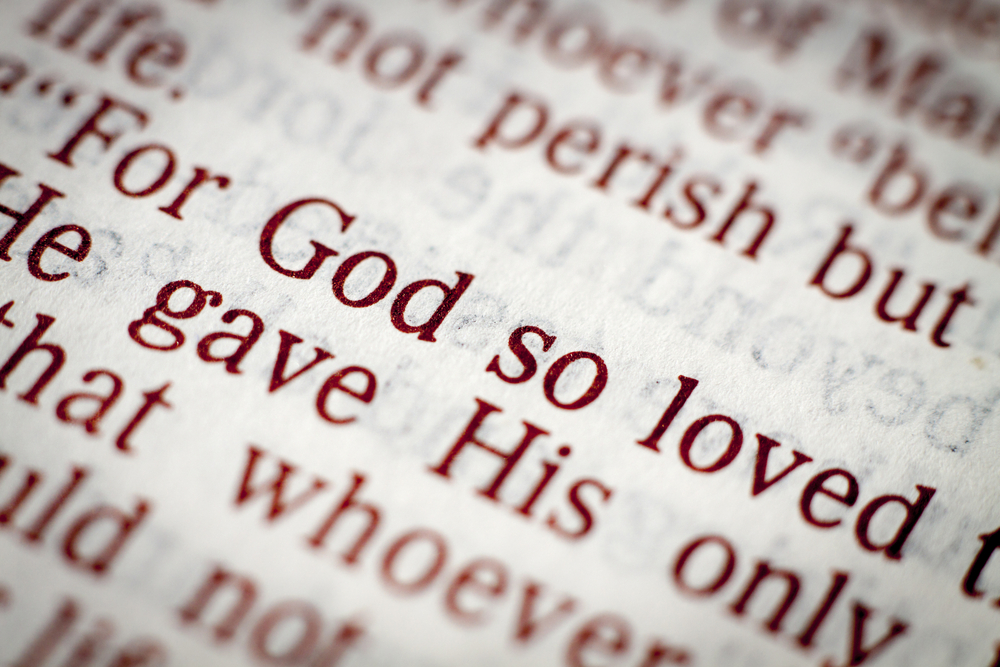Today’s Gospel reading includes one of the most-quoted lines of Scripture, John 3:16. This verse is often seen at baseball games or on the bottom of an In-n-Out cup, but what does it really mean for us in our journey of faith?
Bishop Daniel Mueggenborg, auxiliary bishop for the Archdiocese of Seattle, stopped by Morning Air® to reflect on today’s Gospel and help us see this famous verse with new eyes. Bishop Mueggenborg said:
“John 3:16 is the famous statement of Jesus that God so loved the world that He gave His only Son. So that everyone who believes in Him might have eternal life.
Now, the reason that passage is so important is not just because it’s so quoted, but also because that passage is so meaningful when we understand it in the context of John’s Gospel. Putting the passage in its context doesn’t diminish its power, but actually gives it its power.
The first thing we need to do is remember that Jesus gives us this great statement in the context of His conversation with Nicodemus. Now, Nicodemus is coming to Jesus at nightime. He’s someone who is curious about Jesus, but he is still a little bit afraid. But he wants to explore what the gift of faith is about, so he’s talking with Jesus, trying to understand Jesus’ mission.
And in the context of that, Jesus has an interesting statement to Nicodemus. He says, ‘Just as Moses lifted up the serpent in the desert, so must the Son of Man be lifted up; so that everyone who believes in Him may have eternal life.’ Now that is an important statement, because that is giving us the particular context in which we receive the gift of eternal life, through the act of believing.
So the context that Jesus is speaking of is the Son of Man being lifted up, just as Moses lifted up the serpent in the desert. In John’s Gospel, the Son of Man being lifted up is always a reference to the crucifixion on Calvary. So Jesus is telling us that there is a particular faith that we have when we see the Son of Man lifted up. And we believe that He is revealing to us the very love of God, the presence of God, through the Cross on Calvary.
Now that faith is important, because up to this point in John’s Gospel, we’ve seen Jesus do other things that have led people to believe in Him. For instance, in chapter 2 He turned the water into wine at Cana, and we are told that people began to believe in Him because they saw that miracle. We were also told last week that people began to believe in Jesus because they saw the signs He was doing in Jerusalem – the cleansing of the temple and all that.
Now, in this Gospel, Jesus is telling us that we have eternal life, not because we believe in His miracles or because we believe in His dramatic preachings in the temple. But we have eternal life because we believe in Him lifted up on Calvary as the revelation of God’s presence and love for us. And that our act of believing actually draws us into that experience.
So that act of believing is more than just an intellectual assent. It really refers to a participation of our life, where we say yes to God’s action of revealing His love and His presence. And we say yes in such a way that God now reveals His love and presence to the world through us. That believing is an active participation in God’s revelation, and not just a passive observation, or a passive reception of God’s revelation. Now that’s a powerful statement, because that’s what it means to believe in John’s Gospel.
Interestingly, in John’s Gospel the word ‘faith’ is never used as a noun. ‘Belief’ is never used as a noun. It’s always a verb. John wants us to know that believing is an active and dynamic experience in our lives. Something that is being received and given as an instrument of God’s presence in the world. Each one of us becomes that instrument of God’s presence when we believe in Jesus as the one whom the Father sent, and who reveals the Father to us on the Cross of Calvary. It’s a powerful statement.
So when we get to that famous passage of John 3:16 we’re told that God so loved the world that He gave His only Son. We need to ask ourselves the question, ‘How did God give His Son to the world?’ God gave His Son not just in the Incarnation, when the Word became flesh and dwelt among us. But God continued to give His Son on the Cross of Calvary. And Jesus continues to give Himself to us in the Eucharist.
And when we receive this great cascade of God’s love, manifested in God’s self-giving, we are then challenged to become an instrument of God’s self-giving to the world through us. So that the cascade of God’s self-giving love continues in the world, and the world may believe through us, as His disciples.”
Listen to the full reflection below:
Morning Air can be heard weekdays from 6:00 – 9:00 a.m. Eastern/3:00 – 6:00 a.m. Pacific on Relevant Radio®.

